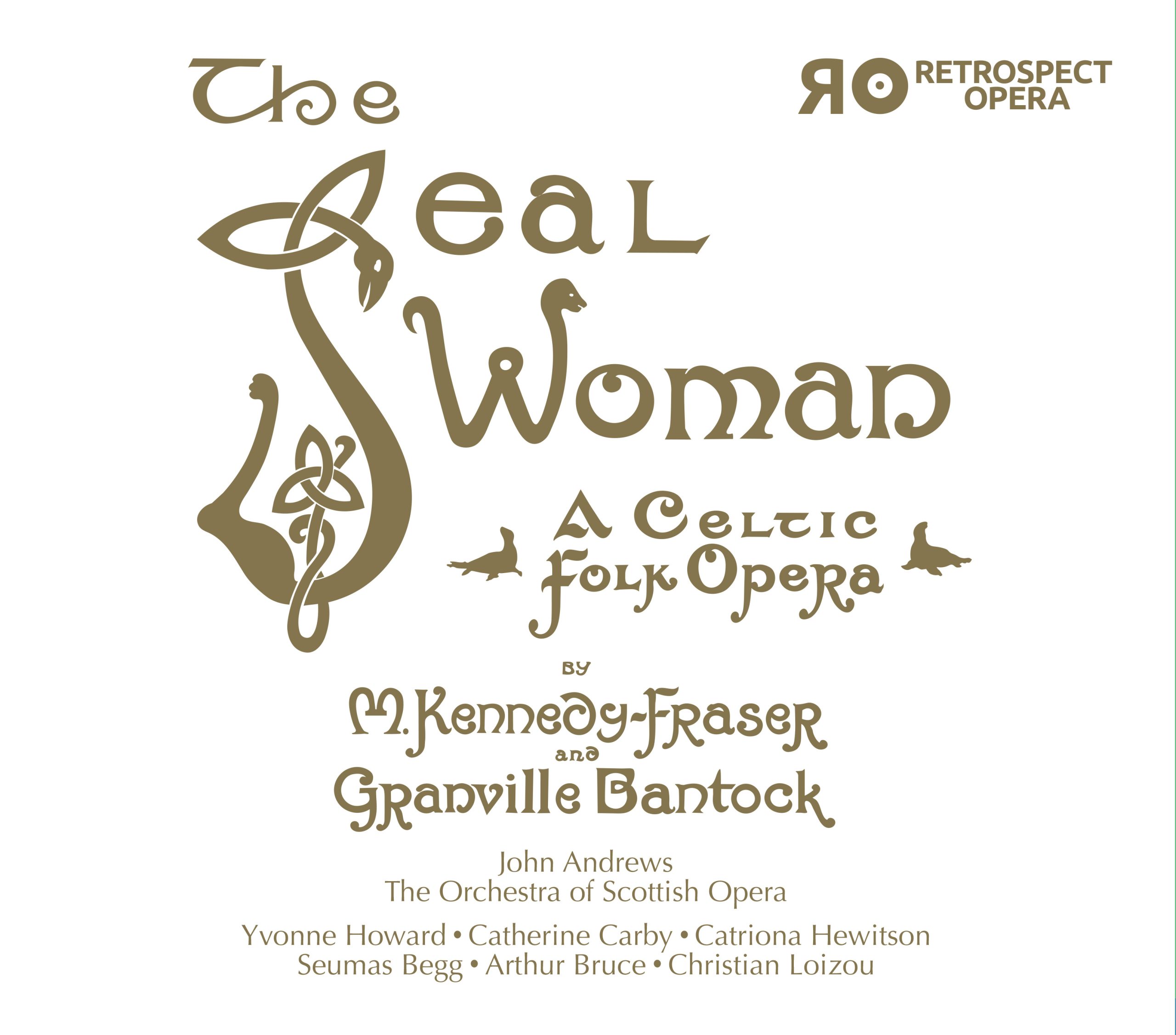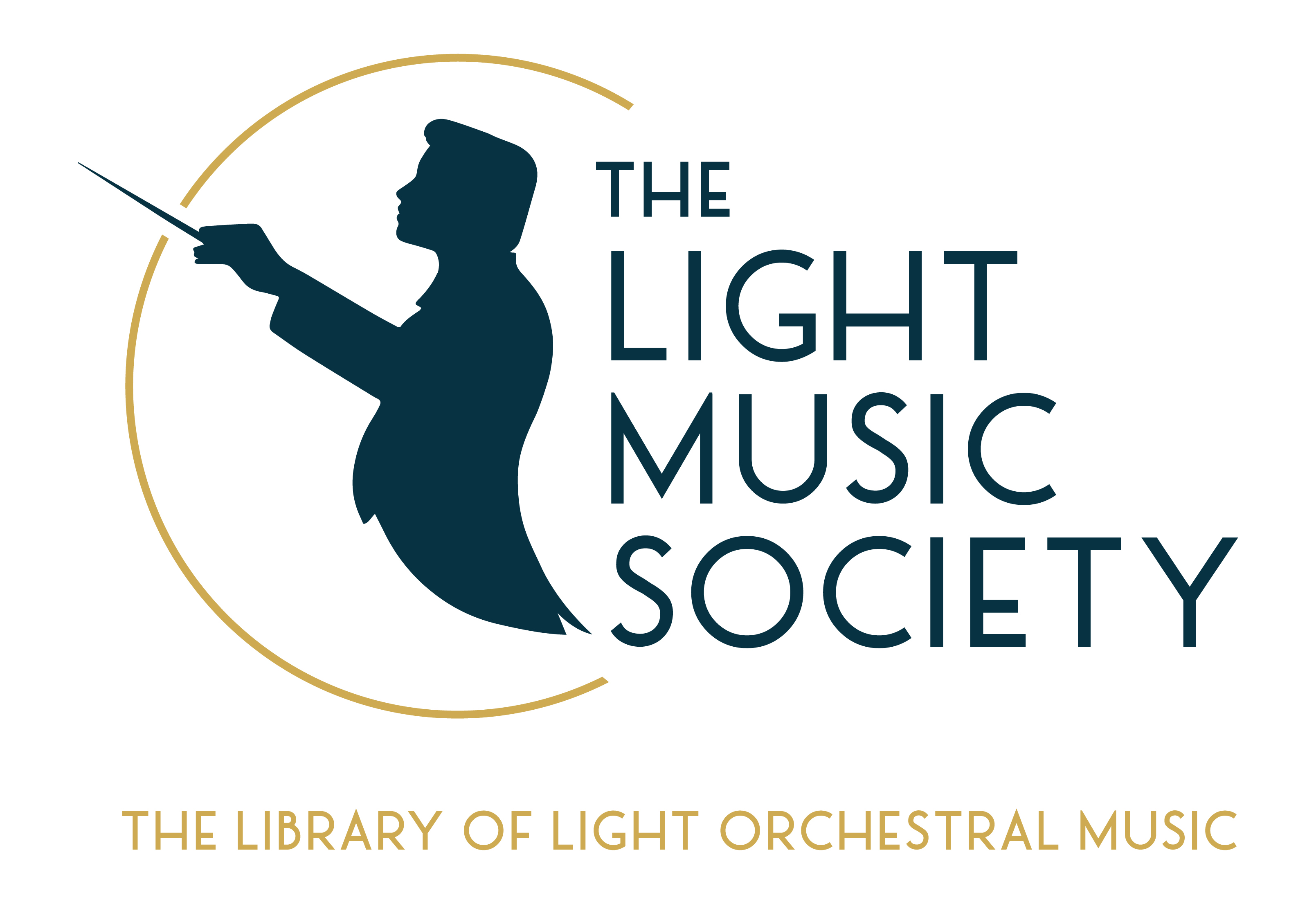Fraser/Bantock: The Seal-Woman
Yvonne Howard, Catherine Carby, Catriona Hewitson, Seamus Begg, Arthur Bruce, Christian Loizou
Orchestra of Scottish Opera
Conducted by John Andrews
Retrospect Opera RO12
A year since Retrospect Opera’s award-nominated premiere recording of Stanford’s Shamus O’Brien comes this recording of a lesser-known “Celtic Folk-Opera”. It seems that the folk song collector and singer Marjory Kennedy-Fraser approached the established composer Granville Bantock with the proposal for some form of Gaelic folk-opera. This was influenced by her own collections of Scottish folk tunes and would form a drama based upon the ballad of the Seal Woman. There is some evidence, explained in the outstanding liner notes by Andrew H. King (whose PhD focussed on the work of Granville Bantock) that there may have been other planned projects of a similar nature, but these seem not to have come to fruition. Thankfully however, we now have a premiere recording of this fascinating and unique piece.
The story is a simple one: A tale of doomed love between a mortal “Islesman” and the magical figure of a seal-woman or selkie, with a clever framing device of a Cailleach (or old crone) narrating the story, lending a fatalistic aspect to the proceedings.
Musically, it makes for a curiously static work, though it does occasionally rise to affecting emotional heights at key moments. First staged by the Birmingham Repertory Company, it appears that the pit was of very modest size, so Bantock orchestrated the work for only 16 players, which lends the work a remarkable intimacy, perfectly suited to the mood of a story being narrated to a select few listeners. What it lacks, however, is a sense of propelled drama. There are a number of memorable moments, but some of these may only reveal themselves upon repeated listens (something I’d recommend with this piece). I’m sure, however, that any dramatic issues would prove far from insurmountable, and I can imagine a most atmospheric, even magical night at the theatre being conjured with a production in the right hands.
The (reduced) orchestra of Scottish Opera under John Andrews (and assistant conductor Benjamin Hamilton) weave a delicate musical web around the drama, including a prelude and interlude in which they are granted time to shine on their own. The interlude in particular shows off the ensemble’s lightness of touch: the tune itself is repeated several times with constantly varying harmonies and it is a credit to the orchestra that it at no point becomes overly samey.
Given the aforementioned musical stasis, the cast succeed admirably in capturing as much variety wherever they can: most of the first act utilises folk song material, while there is far more recitative writing in the second and all of the cast handle this contrast very well. Seamus Begg as The Islesman lends his role both exquisite sensitivity and a reserved passion, which he only allows to bubble to the surface in brief moments- a skilfully judged dramatic performance. In the role of the Seal-Woman, meanwhile, Catherine Carby is a wonderfully ethereal presence. On one level there is something of Melisande to the character (someone who drifts into the story, drifts through it and then drifts off again!), but there is something much more “ancient” about the seal woman and Carby combines the livelier folksy music with the more mysterious side of her role with great dexterity. Of course, where Melisande is arguably in part the architect of her own downfall, the seal-woman is entirely at the mercy of her lover and later husband and Carby gives real pathos to the role of a woman torn between her love of her husband (who is actually also her captor) and child, and her natural underwater home. Catriona Hewitson in the role of the seal sister also provides a sympathetic character for the listener, calling so often to her sister to unite again and leave her mortal love. The ever-brilliant Yvonne Howard singing the role once occupied by Marjory Kennedy-Fraser herself, executes the role beautifully: a warm and sensitive storyteller throughout the role.

Curiously, there is a very great deal of offstage singing from many characters. The seal-woman herself is introduced with offstage singing and concludes her role offstage, her sister is often heard from afar, as are the first fisher and the swan maidens. I’d have perhaps liked a little more audible differentiation between those singers on and off stage—some is indeed present, I’d just have liked a little more— though this can be difficult in a studio recording. Similarly, there are times when the voices are heard a little at the expense of the orchestra and I suspect this is a close-miking issue rather more than a case of over-powerful singing.
The package itself, as usual for Retrospect, is exemplary. King’s commentary in the generous booklet provides invaluable insight into the conception of this most unusual of operas, and it includes a full libretto (really recommended to have to hand whilst listening) as well as a handy guide to the Gaelic words, artist bios and cast, recording and archive photos. There is also an in-depth biography of Marjory Kennedy-Fraser, and some writing from Fraser herself providing background and a synopsis. All of this is handsomely packaged in a sleek white sleeve with gold text, eschewing (I think wisely) the use of archival imagery on the cover that was present in some previous releases. This is clearly marketed as a modern release of a living work of art, further making the case for future stagings. Whether this will materialise or not remains to be seen, but for now, dim the lights and let the spell conjured by the recording envelop you.
DA

Leave a Comment
I hope you enjoyed this post. If you would like to, please leave a comment below.